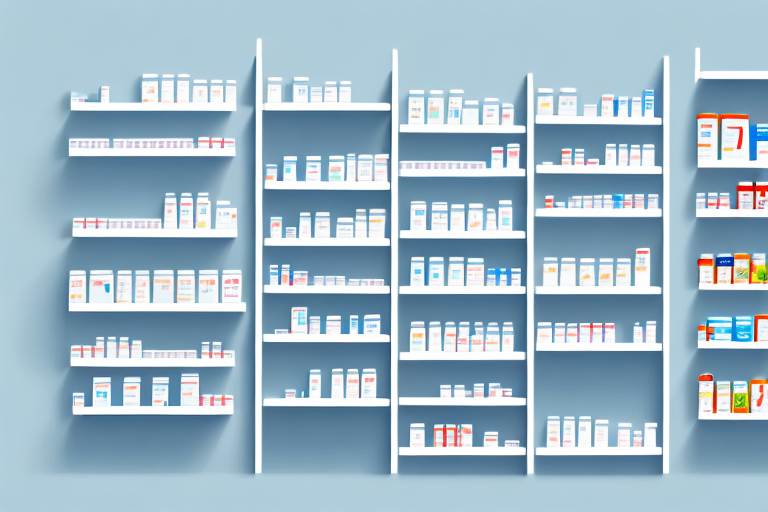Advantages of Medical Delivery Services
Medical delivery services are revolutionizing the healthcare industry by offering numerous benefits to patients and providers alike. These services enhance convenience, improve cost-effectiveness, and ensure privacy in the management of medical needs.
Convenience and Accessibility
One of the primary reasons for the growing popularity of medical delivery services is the unparalleled convenience they offer. Patients no longer need to travel to pharmacies or medical supply stores, saving valuable time and effort. This is especially beneficial for individuals with mobility issues or those residing in remote areas. According to a [2023 report by McKinsey & Company](https://www.mckinsey.com/industries/healthcare/our-insights/medical-delivery-services-post-pandemic), the demand for home delivery services surged by 35% compared to pre-pandemic levels, highlighting the sustained need for accessible healthcare solutions.
Cost-Effectiveness
Medical delivery services can lead to significant cost savings for both patients and healthcare providers. By eliminating the overhead costs associated with physical storefronts, these services often offer medications and medical supplies at lower prices. Additionally, bulk ordering and streamlined logistics contribute to reduced costs. A study published in the Health Affairs Journal found that telehealth and related delivery services have the potential to reduce healthcare costs by up to 20% by minimizing hospital readmissions and emergency room visits.
Enhanced Privacy and Confidentiality
Privacy is a critical concern in healthcare, and medical delivery services address this by ensuring confidential handling of personal and medical information. Deliveries are made discreetly, which is particularly important for patients managing sensitive conditions such as mental health issues or HIV/AIDS. Secure data management practices are employed to protect patient information, complying with regulations like the Health Insurance Portability and Accountability Act (HIPAA).
Operational Mechanisms of Medical Delivery Services
Understanding how medical delivery services operate can provide insight into their efficiency and reliability. These services bridge the gap between healthcare providers and patients, ensuring timely and accurate delivery of essential medical supplies and medications.
Service Processes
Medical delivery services typically involve a seamless process starting from the placement of an order by the patient or healthcare provider. Once an order is placed, the service coordinates with pharmacies and suppliers to fulfill the request. Advanced inventory management systems ensure that medications and supplies are available and ready for dispatch. For instance, ShipScience Pharmacy Delivery offers real-time tracking and automated refill options, enhancing the user experience.
Use of Technology
Technology plays a pivotal role in enhancing the efficiency of medical delivery services. Sophisticated tracking systems enable real-time monitoring of deliveries, ensuring transparency and reducing the risk of errors. Mobile applications allow patients to place orders, receive notifications, and manage their medications remotely. Additionally, route optimization algorithms help in minimizing delivery times and reducing operational costs.
Impact on Patient Care and Healthcare Systems
Medical delivery services have a profound impact on patient care and the broader healthcare system. By ensuring timely access to medications and supplies, these services contribute to better health outcomes and more efficient healthcare delivery.
Timeliness and Medication Adherence
Timely delivery of medications is crucial for managing chronic conditions such as diabetes, hypertension, and cancer. Medical delivery services offer flexible scheduling options, allowing patients to receive their medications at their preferred times. Improved medication adherence leads to better disease management and reduced complications. According to the Centers for Disease Control and Prevention (CDC), adherence to prescribed medication regimens can reduce hospitalizations by up to 50%.
Reduction in Emergency Room Visits
By providing consistent access to necessary medications and supplies, medical delivery services help prevent emergency situations that can lead to costly hospital visits. Patients who manage their conditions effectively at home are less likely to experience exacerbations that require acute medical attention. This not only improves patient well-being but also alleviates the burden on emergency healthcare facilities.
Improving Patient Outcomes
Reliable access to medical supplies and medications directly correlates with enhanced patient outcomes. Medical delivery services ensure that patients receive the correct medications in a timely manner, reducing the risk of treatment delays and errors. This is particularly important for patients requiring specialized treatments or those undergoing complex medical regimens.
Challenges and Considerations
While medical delivery services offer numerous benefits, there are challenges and considerations that need to be addressed to ensure their effectiveness and reliability.
Medication Availability
Ensuring the availability of medications is a critical concern for medical delivery services. These services collaborate closely with pharmacies and suppliers to maintain adequate stock levels and manage inventory effectively. In cases where specific medications are unavailable, medical delivery services work with healthcare providers to find suitable alternatives or expedite orders. For urgent needs, services like ShipScience Urgent Delivery offer same-day or next-day delivery options to meet patient requirements promptly.
Choosing the Right Service
Selecting a reliable medical delivery service is essential for ensuring patient safety and satisfaction. Factors to consider include the service's coverage area, delivery times, cost, and customer support. It is also important to verify that the service is licensed and compliant with healthcare regulations. Reviews and testimonials can provide valuable insights into the quality and reliability of the service.
Future Trends in Medical Delivery Services
The landscape of medical delivery services is continuously evolving, driven by technological advancements and changing healthcare needs. Several trends and innovations are shaping the future of this industry.
Technological Innovations
Emerging technologies such as artificial intelligence (AI) and machine learning are enhancing the capabilities of medical delivery services. AI-driven predictive analytics can anticipate patient needs and optimize inventory management. Additionally, blockchain technology is being explored to ensure the security and transparency of medical transactions and deliveries.
The Role of Drones and Automation
Drone technology is poised to transform medical deliveries, particularly in remote or hard-to-reach areas. Drones can deliver medications and supplies quickly and efficiently, bypassing traditional logistical challenges. Automation in warehousing and logistics is also improving the speed and accuracy of deliveries, reducing human error and operational costs.
The Impact of COVID-19 on the Rise of Medical Delivery Services
The COVID-19 pandemic significantly accelerated the adoption of medical delivery services. Social distancing measures and the increased demand for remote healthcare solutions highlighted the importance of efficient delivery systems. Telehealth services expanded rapidly, complementing medical delivery services by providing remote consultations and facilitating the seamless prescription and delivery of medications.
Conclusion
Medical delivery services are integral to the modern healthcare ecosystem, offering enhanced convenience, cost savings, and improved patient outcomes. As technology continues to advance and healthcare needs evolve, these services will play an increasingly vital role in ensuring that patients receive timely and reliable access to essential medical supplies and medications. Embracing these services can lead to a more efficient and patient-centered healthcare system.






















